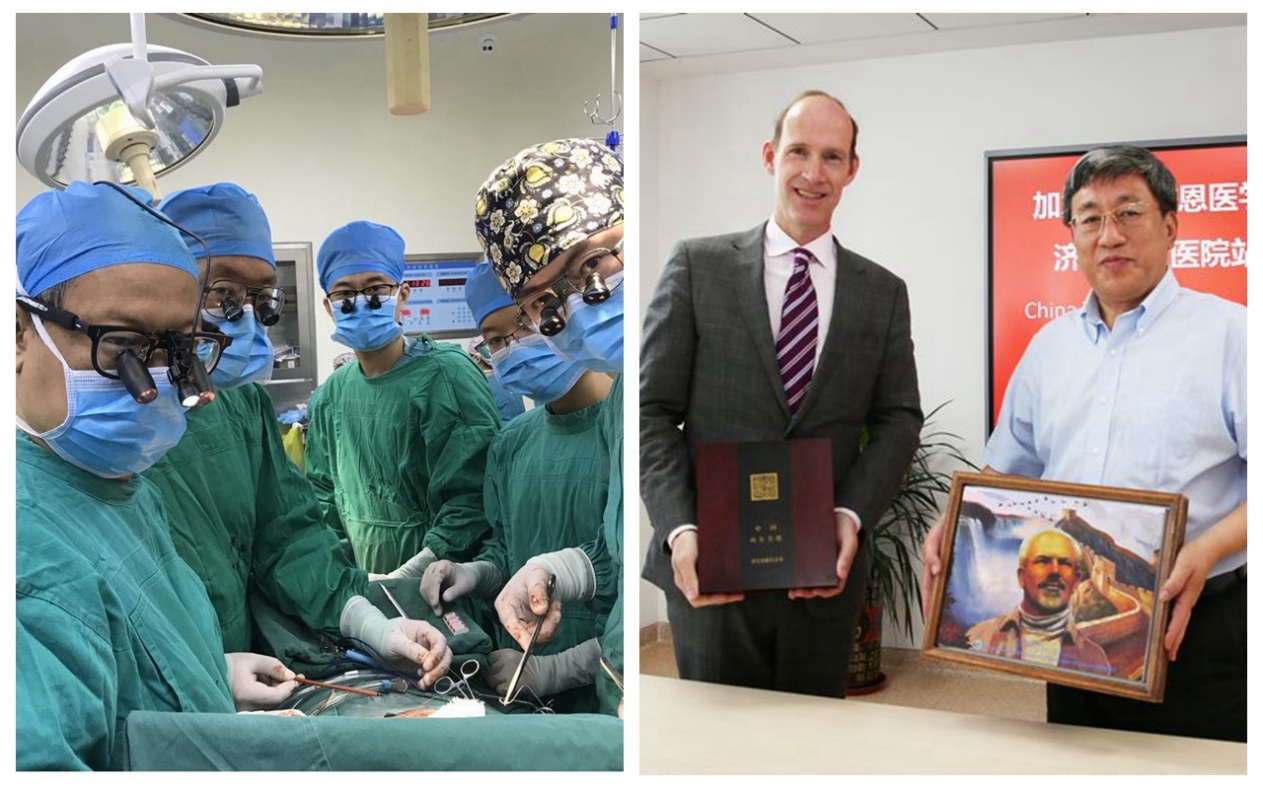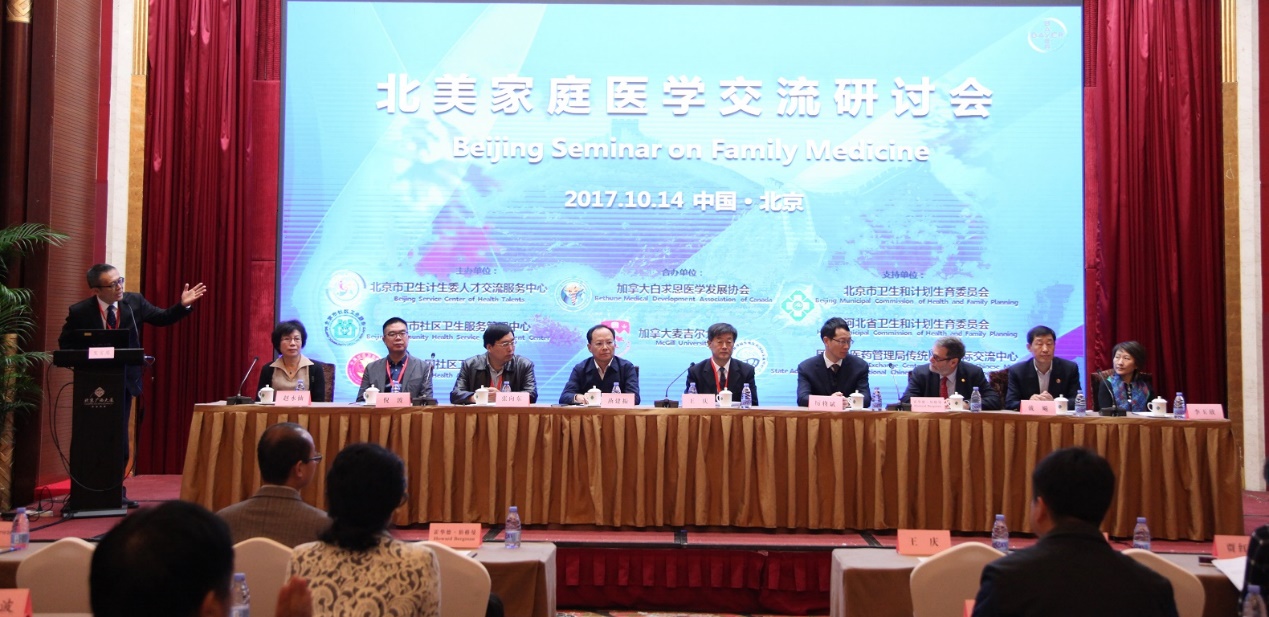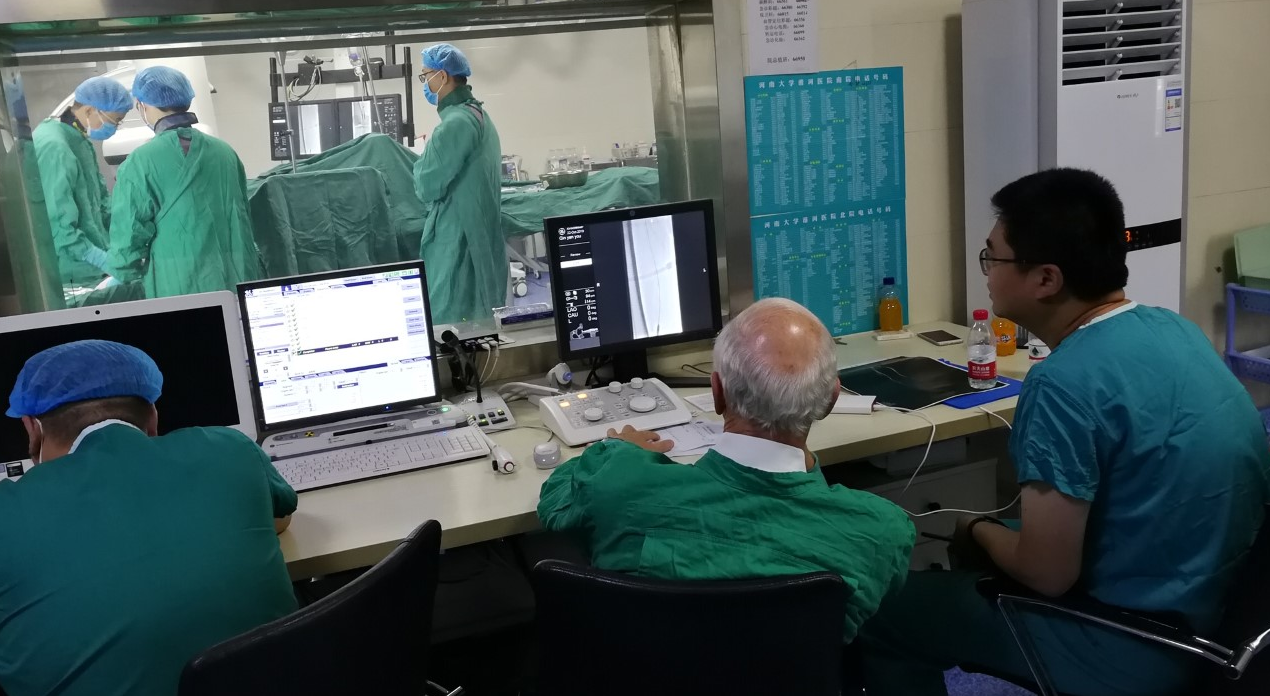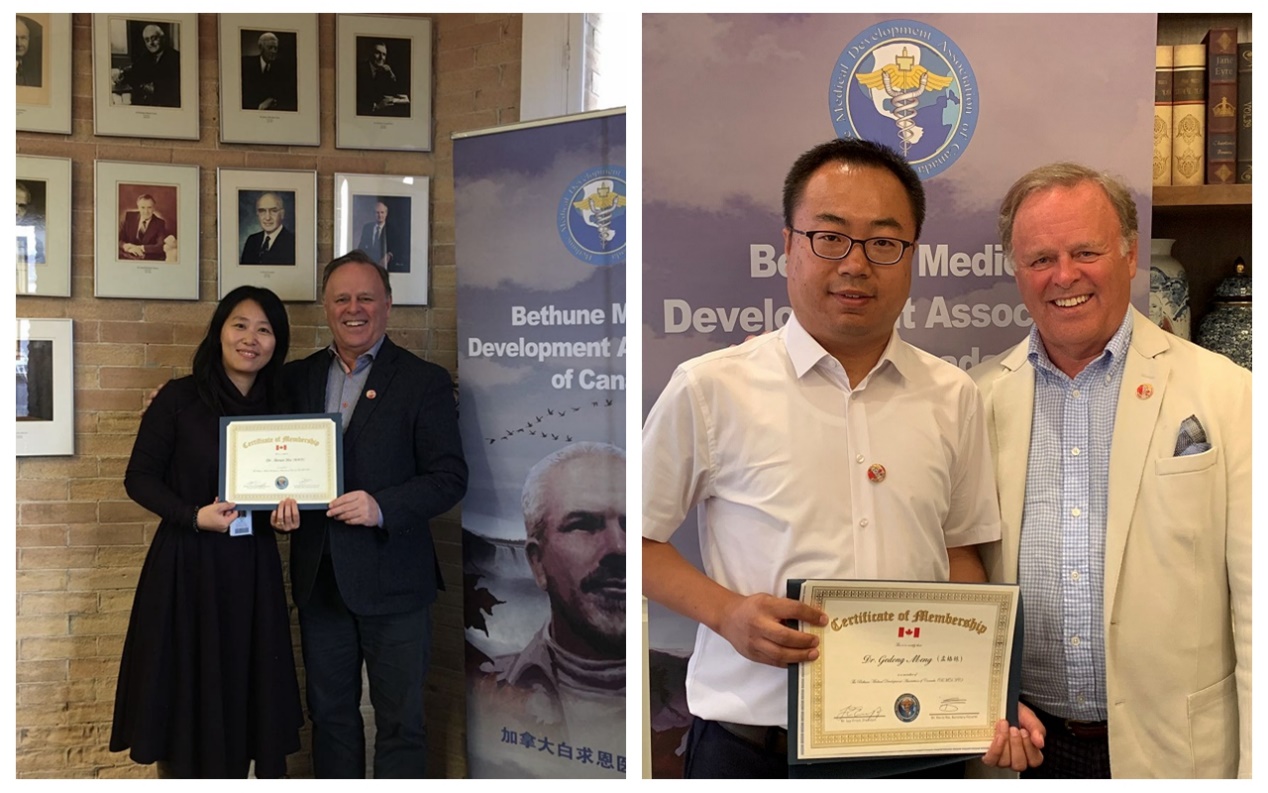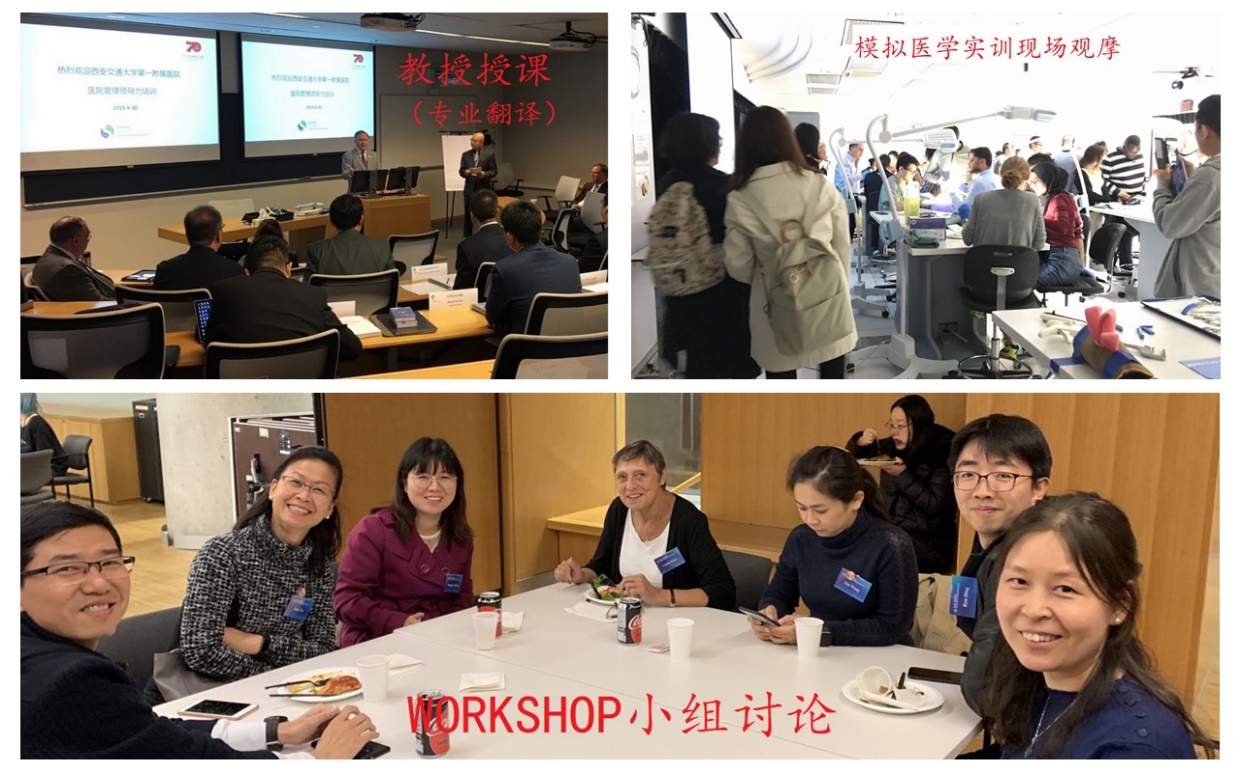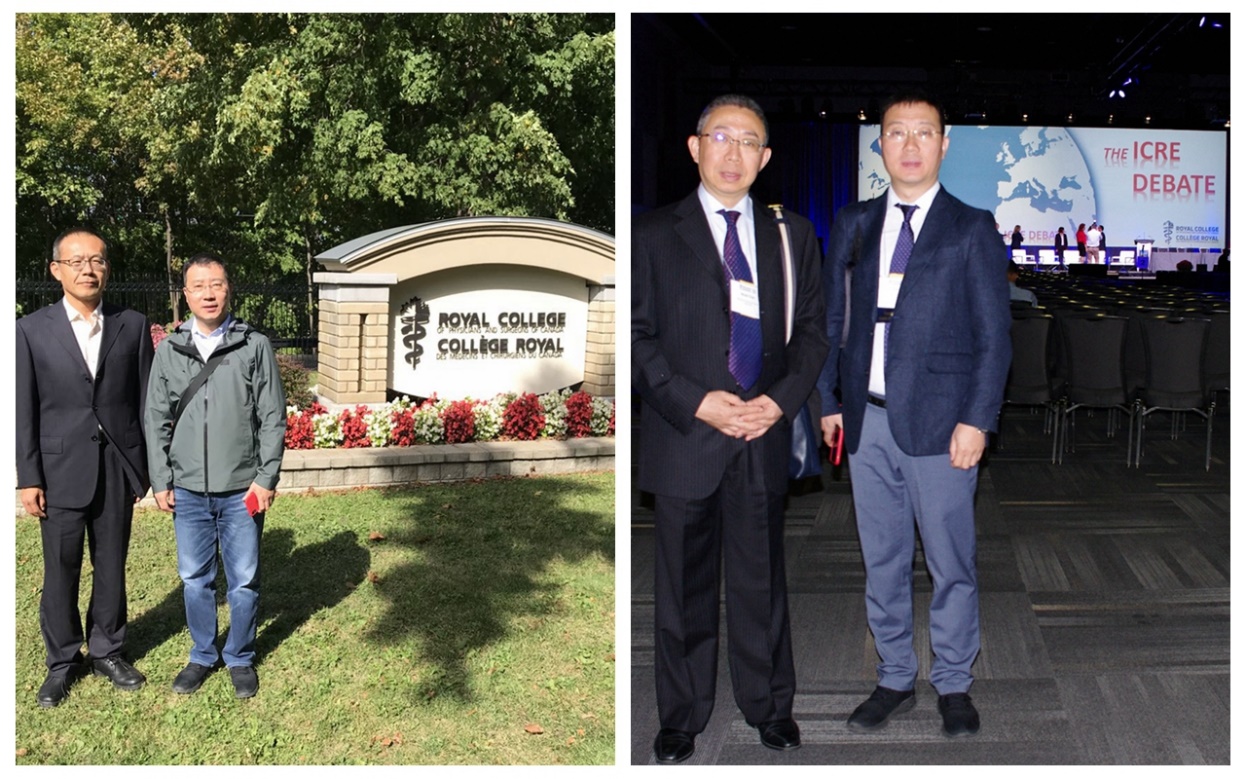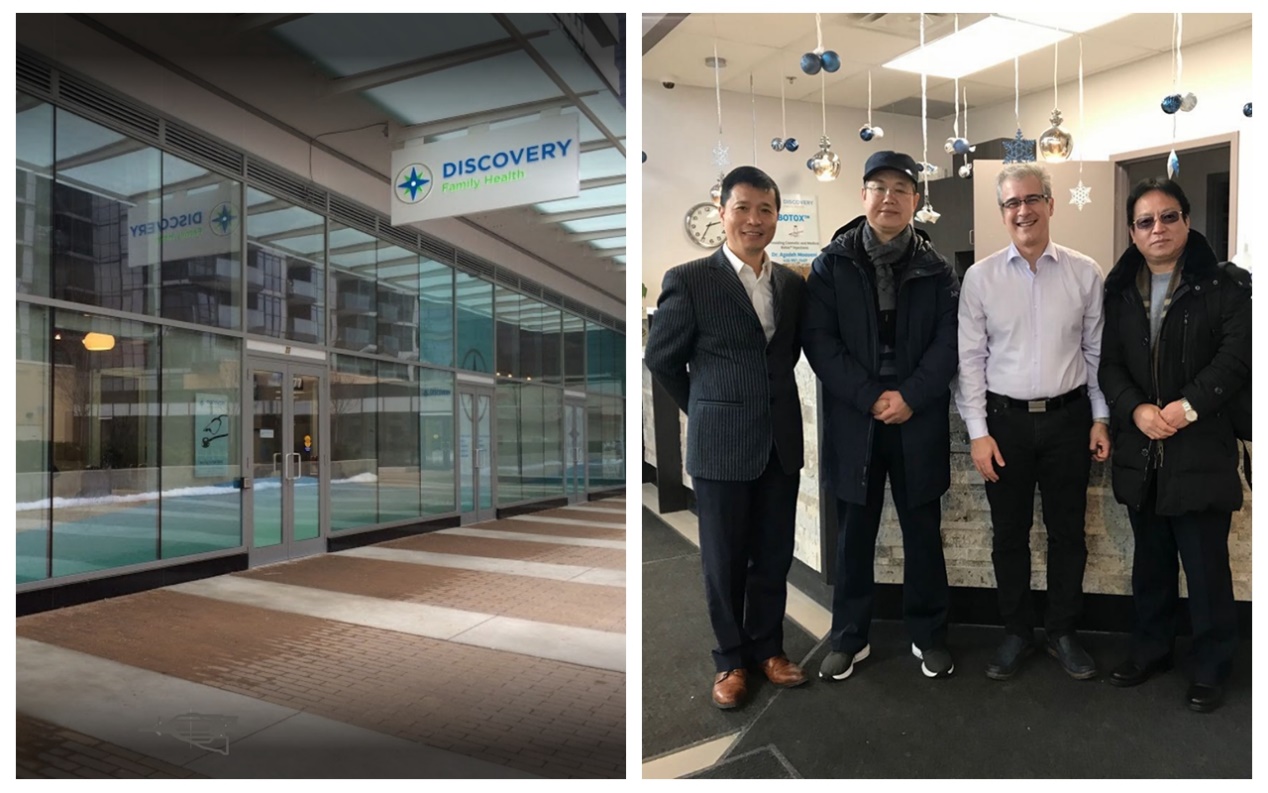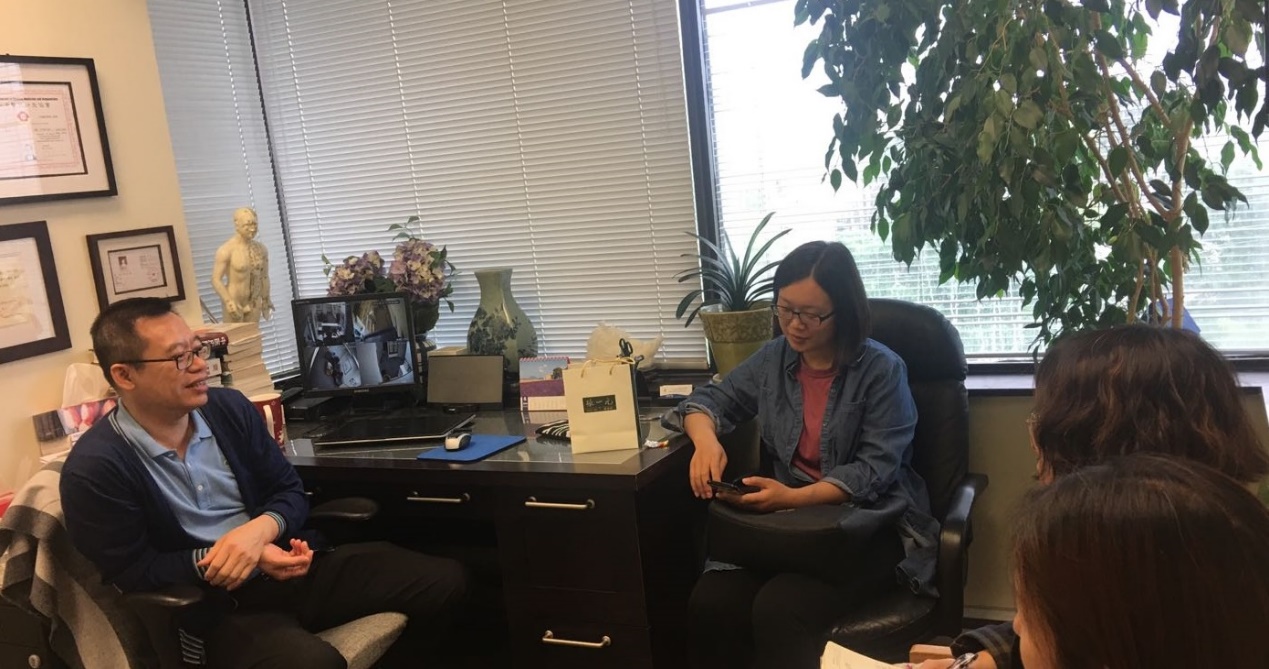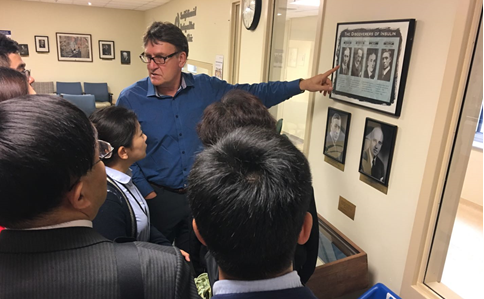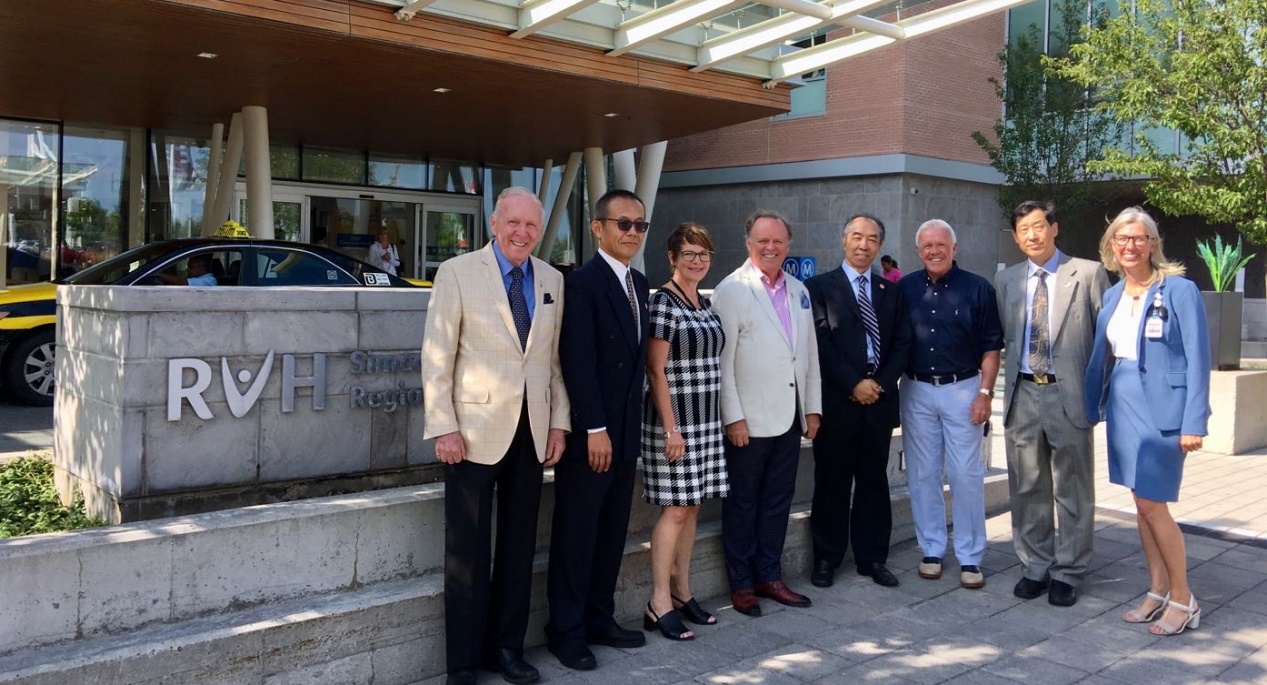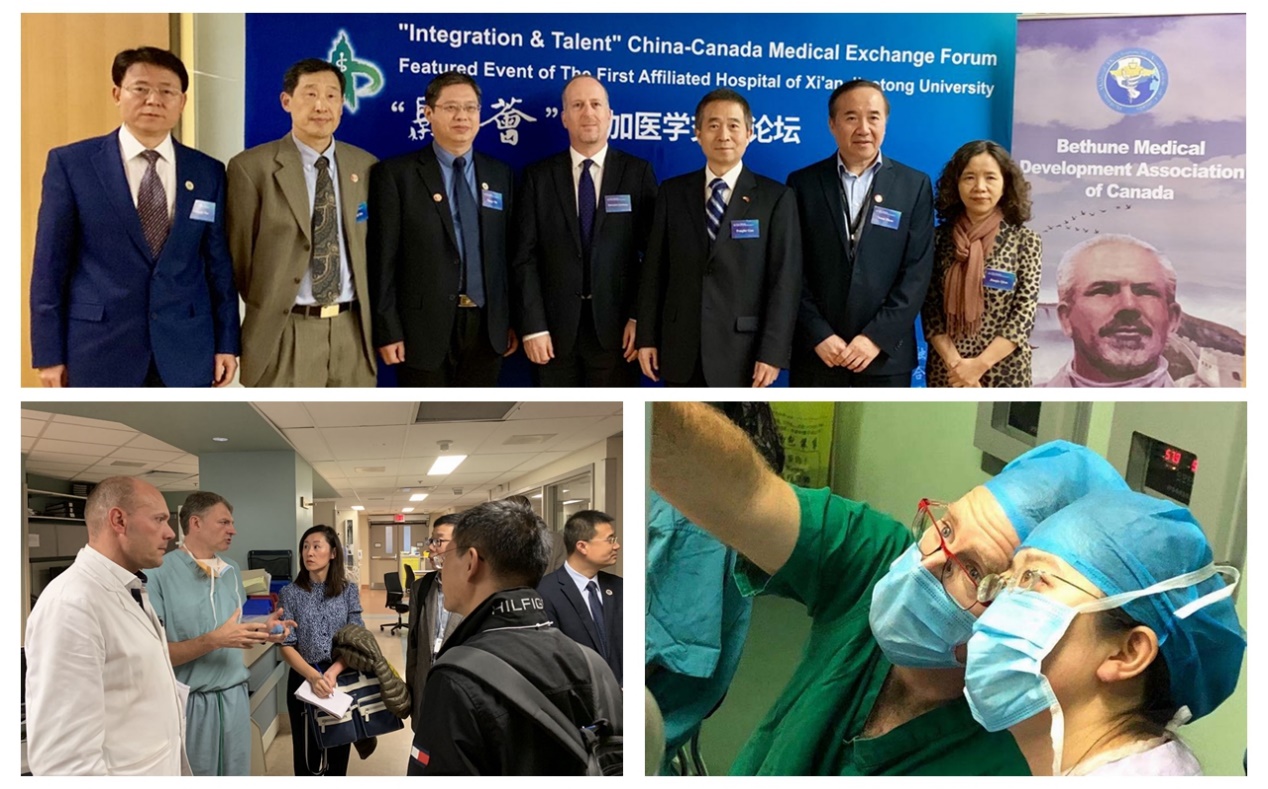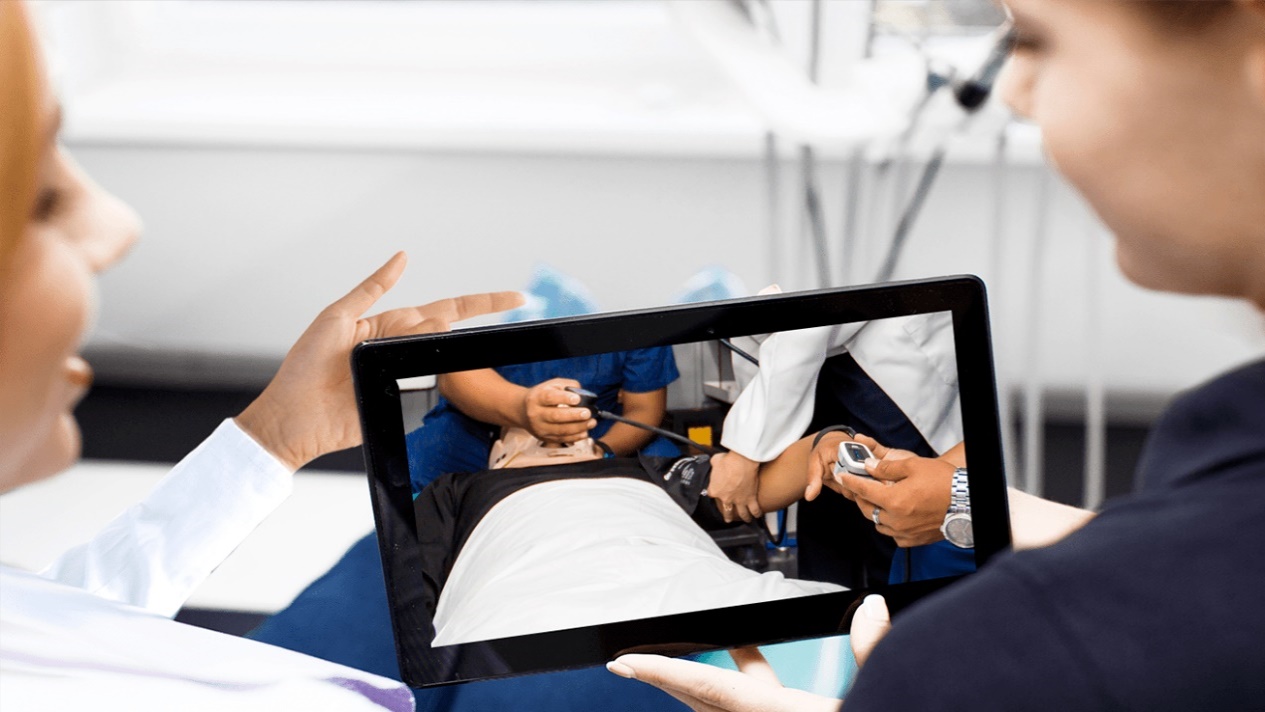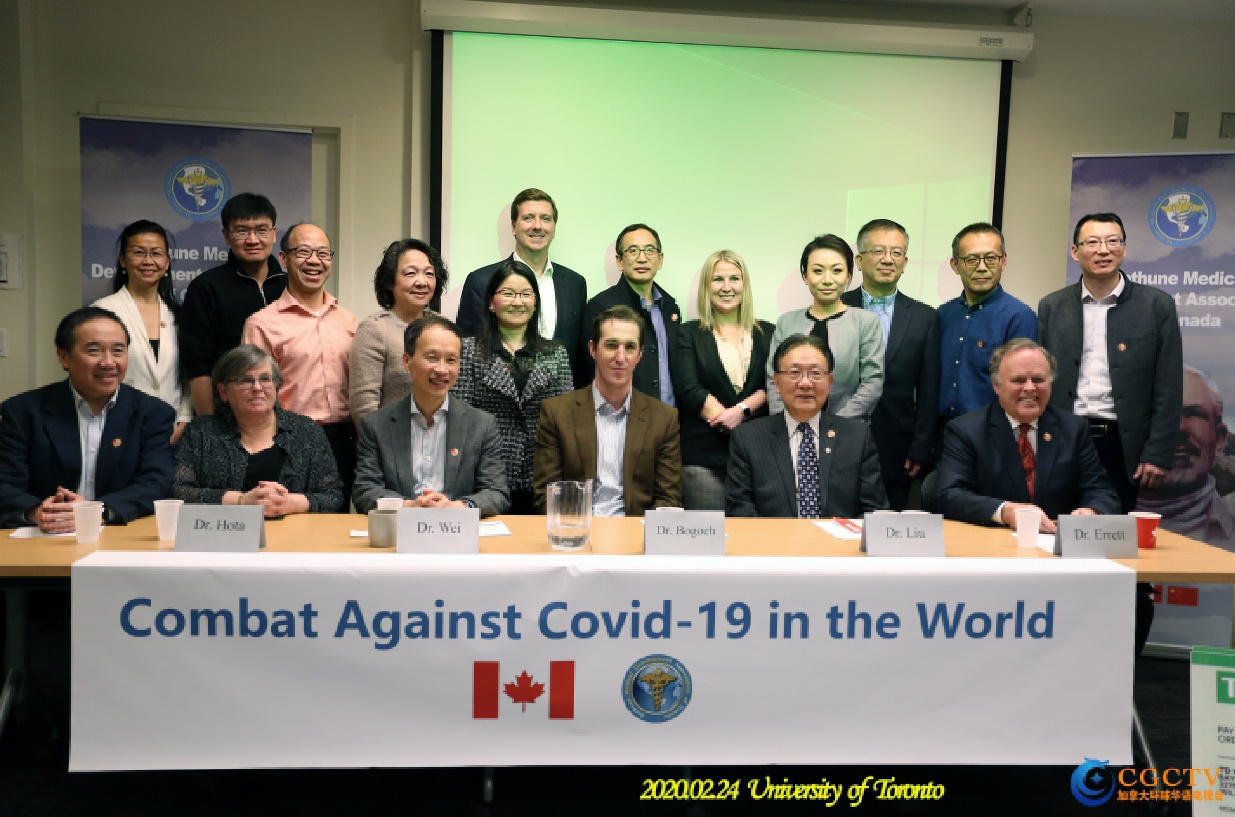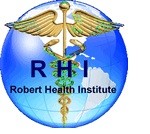| Education |
|
Bethune Medical Development Association of Canada Exchange & Education Programs (2020-2021) 2020–2021 Annual Key Recommendations 1. Voluntary clinics and academic exchange in China 2. Special training for clinicians in Canada 3. Training for resident teachers in Canada 4. Training for family medicine faculty in Canada 5. Training for senior nurses, public health physicians and pharmacists in Canada 6. Hospital visiting group 7. Customized remote medical education courses 1. Voluntary clinics and academic exchange in China
The core members of Bethune Medical Development Association of Canada (BMDAC)are mainly doctors from well-known Canadian university affiliated hospitals. Following the footsteps of Dr. Norman Bethune, they visit China twice a year for voluntary clinics and academic exchanges during their personal holidays. They have implemented nineteen "Contemporary Bethune in Action” visits, earnestly practicing and inheriting Dr. Bethune's professional spirit and humanitarian dedication. In the past decade, they have successfully completed over five hundred of operations in China. Additionally, they introduced the latest medical development achievements in the world and medical education experience in North America by holding over six hundred academic lectures and exchange forums in China. The procedure of the program is that potential hospitals in China fully communicate with BMDAC in advance on their intended professional fields. BMDAC will organize the corresponding professional expert team to visit the potential hospitals in May and October every year. The on-site technical exchanges and consultation will be carried out during their stay in China. After ten years of exchanges and cooperation, BMDAC has helped Chinese hospitals improve significantly in terms of medical level, talent team and brand building. Moreover, BMDAC has established long-term technical cooperation relations with several local hospitals in different cities of China.
2. Special training for clinicians in Canada
Participants of this program who are qualified will be registered as clinical observers. They will observe the clinical practice in Canadian medical institutions, under the guidance of a one-on-one tutor, in their specific clinical field, participate in hospital teaching and research activities, understand the division management as well as the operation of Canadian medical institutions in terms of medicine, teaching, research and management. This on- spot training can help trainees gain overseas study and work experience, learn advanced medical technologies, study various hospital management models, explore the handling moods of doctor-patient relationships under different cultural backgrounds, and understand the specific connotation of medical humanities in Western countries. BMDAC has arranged nearly two hundred Chinese doctors with various specialties to study in Canada in the ten years since the association was established. The period varies from two months to one year. Those doctors learned representative foreign medical technology, broadened their horizons, experienced different medical humanities, and built a high-level professional exchange platform after they returned to China.
3. Training for resident teachers in Canada
There are 17 medical schools in Canada, which have undertaken the task of training nearly 3,000 residents. A complete system has been established in the selection and training of medical students after more than one hundred years of development. Its highly humanized and high-tech resident matching system has been established based on the competency training framework and modern educational technologies. Participants will be registered in the university teaching hospital as educational observers. One hospital will be selected as the main base by combining the individual professional expertise of trainees with the superior professional expertise of affiliated hospitals. Other medical institutions of corresponding universities are also open to the trainees. The trainees will participate in teaching activities in the training base, discuss directly with the teaching supervisor during the observation. Additionally, they will participate in academic exchange meetings including the International Resident Education Conference organized by the Royal College of Physicians and Surgeons of Canada, and observe the curriculum development, assessment and project management of simulation medical teaching. Furthermore, they will observe the multi-site examination organization and understand its orientational function during the training of the practitioners. Participants can fully experience the complete atmosphere of teaching and learning, doctor-patient relationship and medical humanities in the mature resident education environment that has been developed for nearly a century. BMDAC has developed special course of improving teaching ability of simulation medicine teaching (SMT), as well as the course of improving the ability of resident examiners (RE) in order to meet the needs of the training and development of residents in China. The SMT ability improvement course introduces Canada’s health system and postgraduate medical education system. The trainees will visit university hospitals, observe its medical education activities, and thus gain an in-depth understanding of all aspects of the operation of a mature simulation medicine teaching center as well as the cooperative relationship between simulation medicine teaching center and medical schools/institutions. They will learn the cooperative mechanism for setting up and operating various positions in the simulation medicine teaching center, and discuss the development, organization and assessment of simulation courses. The RE ability improvement course adopts various forms such as theoretical lectures, teaching demonstrations, workshops, etc. It takes the design of examination questions as the framework to gain an in-depth understanding of the organization, implementation and management of examinations, examiner training, result analysis and evaluation, SP training, and OSCE multi-site workshop teaching activities. Moreover, the trainees will participate in the evaluation of simulation teaching in different aspects, including mutual evaluation between team members and feedback from trainees and training teachers. BMDAC has cooperated with hospitals in Beijing and Xi'an since 2016 and arranged senior resident teachers every year from more than ten hospitals, including China-Japan Friendship Hospital and Beijing Chaoyang Hospital. 32 of the teachers have senior technical titles.
4. Training for family medicine faculty in Canada
Canada implements strict graded diagnosis and treatment, and the corresponding family doctor plays an important role as the gatekeeper of health care. The 70-year-old Canadian College of Family Physicians certifies the family medicine training program of Canadian medical schools, conducts certification examinations for family medicine residents, and is responsible for continuing education organizations. CCFP system forms a complete training system for family physicians together with medical schools. BMDAC has been aware of the need for the rapid development of China's primary health care through the voluntary clinics in China. BMDAC has organized number of family medicine faculties from China to study Canadian family medicine. The study contents include: 1) visits to the University of Toronto or McGill University’s affiliated general hospitals and family medicine teaching bases, family clinics, and Traditional Chinese medicine clinics; 2) clinical observation and actual participation in family medicine teaching activities; 3) attending relevant academic conferences of the university’s medical school; 4) understanding of the Canadian health system and the family medicine talent training system; 5) understanding the role of family doctors as the “gatekeeper” of healthcare in the hierarchical diagnosis and treatment system; 6) understanding of the family resident training system and the implementation of daily teaching activities; 7) understanding of the cooperation between family doctors in the community and specialists in medical institutions; 8) learning and exchanging the experience of scientific research. Both academic leaders of family medicine in China and Canada discuss the positioning and functions of the family medicine departments in general hospitals, and the feasibility of staff exchange and cooperation.
5. Training for senior nurses, public health physicians and pharmacists in Canada
Over the years, Canada's total health expenditures accounted for more than 10% of GDP. The government's emphasis on health care has created a country with the world's highest health index. The public health physicians training program will discuss the operation model of the Canadian health care system, including the role positioning and cooperation of general hospitals, specialist hospitals, clinics, and long-term care facilities; the development and existing problems of the universal health insurance system; the composition and main related issues of the public health system detailed explanation of institutions and their main responsibilities; collaboration and interaction between different institutions; attention to health promotion and the actual results achieved in disease prevention and non-medical factors while focusing on the development of the high-tech pharmaceutical industry. Introduce the operation of Canada's existing public health response system by taking major public health incidents as an example, including emergency command center, public health early warning information system, disease prevention and control system, medical treatment network, medical equipment emergency supplies and personal protective equipment storage system, crisis monitor, and evaluation followed by case studies. Canada's pharmaceutical industry is well-developed, and its life science innovation capability is only behind the United States, especially the development of biopharmaceuticals. Canada implements a clear separation of medical care and medicine, supplemented by strict legal supervision. There are currently 40,000 licensed pharmacists working in community pharmacies, hospitals, and pharmaceutical industries. A pharmacist's role has gradually become a medical management expert in a widely recognized healthcare team, providing a series of innovative services, including drug evaluation, chronic disease management and immunization services. The pharmacist training program will adopt classroom seminars, field visits, group discussions, discussions with regulatory authorities, visits to high-tech biopharmaceutical companies, etc., to understand drug distribution operations and supervision, drug procurement and management in hospitals, responsibilities of doctors and pharmacists, management model of hospitalization and prescription drugs for patients and outpatients, the definition of responsibility for drug quality and safety under the structure of separation of medicine and medicine, management model of traditional Chinese medicine, etc.. Canada implements free universal public health insurance and ranks the first in the global health index with high welfare and ageing symbiosis. This brings a lot of care needs. Its nursing profession has three types: Licensed Practical Nurse (LPN), Registered Nurse (NP) and Practicing Nurse (PN). Some provinces also have registered mental nurses. The practice places are flexible and diverse, including residents' door-to-door service to long-term care facilities, medical institutions, mental hospitals, etc. The different categories have established a complete set of occupational classification, training, qualification certification, and management systems. Thus practitioners have an extensive career development space. Participating in this course will learn about the Canadian health system and basic nursing talent training system; the classification and career development path of nursing staff and continuing education; on-site observation of hospital nursing practice; understanding of the integration of hospitals, family doctor clinics, long-term care facilities, and community organizations; discussing the differences in nursing work between China and Canada, and the career development opportunities and possible paths of transformation for senior nurses in Chinese hospitals.
6. Hospital visiting group
Canadian hospitals have achieved good operational management results under the implementation of universal free universal public health insurance and precise hierarchical diagnosis and treatment policy. The Toronto General Hospital affiliated to the University of Toronto ranked seventh in the world's best hospitals in 2019. The visiting group from China will conduct in-depth counterpart exchanges in the domain knowledge of hospital talent training and echelon combination, clinical discipline construction and technology improvement, inter-professional cooperation, and cooperation with community health institutions. The participants will understand in depth the financing and operation management of top Canadian hospitals, discipline construction and human resource strategies, medical and health quality control, the relationship between hospitals and medical schools, community hospitals, and rehabilitation institutions respectively, the historical experience and latest developments in medical and health information construction through lectures, case discussions, field visits, surgical observations, various forms such as academic seminars. They can also experience the integrated management model of medical, teaching and research and the humanistic spirit of "patient-centered"; explore the path of interaction between the hospital's social responsibility and the extensive introduction of volunteers and social donations. At the same time, lots of face-to-face discussion will be arranged with government agencies such as the Ontario Ministry of Health and Long-term Care, and the College of Traditional Chinese Medicine Practitioners and Acupuncturists of Ontario (CTCMPAO). Participants also have the opportunity to interact with the lecturers in-depth and discuss possible cooperation projects.
7. Customized remote medical education courses
Canada is a federal country. The federal and provincial governments have different jurisdictions in health services. Canada also has a long history of community self-government. The diversity of the public health policy management system excludes the complication of cooperation and collaboration results from the administrative management. Nearly half a century after implementing free universal public health insurance, the government is discussing free medicine insurance, while it will bring in greater financial pressure to the government. However, modern medical education that has been in operation for a century have cultivated a team of specialists and family doctors with standardized practice and a clear system. It has highly technical and user-friendly resident matching system. It implements strict quantitative control on talent training and has complete industry protection. It carries out the latest biopharmaceutical research and industrialization relying on strong scientific research strength and intellectual property protection system. All these characteristics show that it is implementing creative and inherited experiments in the field of healthcare, which will provide lots of first-hand experience and lessons for Chinese counterparts. We encourage Chinese colleagues to describe their needs clearly. BMDAC will customize courses for Chinese colleagues based on detailed communication and evaluation, and provide the most valuable content with the highest efficiency and the simplest links through cloud classrooms and other ways. A healthy life is the common will-being of mankind, and it is also our common responsibility.
|
